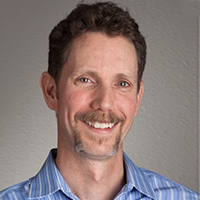This list of “effective habits” is distilled down from a much larger list as being the most important – based on my experience over many years in the business.
How these relate to you will depend of course on exactly what kind of work you are doing, but in general, they apply across the board, so to speak.
You probably have your own list but because you are reading this article, it points to the fact that you’re probably willing to learn new things and already have a great attitude.
Without further latency…
1. Excellent Organization
Understanding how to be organized is partly a personality thing and also partly a learned skill. It takes time to gather enough experience to know how to be efficient and organized for your set of circumstances.
Some people seem to just have a sense of timing, priorities, and know how to get things to happen. But the other side of this – the tools – take some learning. Now that iPhones and various software packages are out there, in many ways staying organized has never been easier.
At the same time, these tools require learning, updating, and almost constant attention.
My advice is to avoid trying to be “ahead of the curve” and stick with using the simplest tools available that will get the job done. This will help keep you from getting bogged down in using the tools for the sake of using the tools – not that we are gear sluts or anything! Once you have established an effective routine, stick with it.
2. Continuous Learning
Like with the organizational tools mentioned above, audio equipment is constantly changing and getting more complex and sophisticated.
This is good because we always want the best tools and the most efficient ways of doing things. But the bad side is that the barriers to entry are ever higher and it requires all of us to keep on top of the latest technology.
But even without chasing the latest software or hardware solution, we need to be on a path of continual learning in our craft. Although this concept would apply to toilet paper and water pumps, it is even more important in our field where art and science meet to create new experiences.
None of us should ever think that we can coast from here on out. I suggest signing up for a class or seminar once or twice a year. There are some great workshops and panel discussions at the trade shows, particularly InfoComm, NAMM, and AES.
And then good ol’ OJT has never let us down. Ask around to see where you might be able to get in on a job and learn something you didn’t know before. What are you waiting for?
3. Good Attitude
This is one of those universal things that applies anywhere. Without a good attitude, you will make enemies and stunt your career’s growth. But with a good attitude, you’ll be more able and willing to learn, take direction, and impress your clients, employees, and bosses.
Of all the factors that I’ve seen make a difference in a person’s potential career, this is probably the most important one. What are some examples?
Re-filling the paper in the copy machine. Not waiting for someone else to change the toner cartridge. Volunteering to fix cables, load racks, replace drivers or any other “dirty work” while you have some downtime. Offering to be the one that shuts off the lights, sets the alarm and locks up at the end of a long day. Being willing to admit when you make a mistake and offering to “make it right” then being ready to accept what that means.
I’m sure you can figure out plenty of other examples on your own. Basically, you want to be thought of as the person that just “makes it happen.”
4. Mentoring
This is perhaps not as obvious or intuitive as the other items on the list, but equally important. All those skills you’ve picked up along the way? Be sure to pass them on without fear of others surpassing you.
Frankly, it is inevitable that the young guns will end up knowing more than you do and will eventually replace you. But wouldn’t you want them to think of you as the guy that helped them get there, like some sort of hero?
Instead, many of us hold our “secrets” to our chest and pretend that others should “figure these things out for themselves.” Don Davis, founder of SynAudCon, used to say “two people meet and exchange dollars, so now each still has one dollar. Two people meet and exchange ideas, now each has two ideas.”
Nothing fosters the growth of the team faster than sharing the ideas and working to support the best ones. And don’t forget that the best ideas may not be your own.















